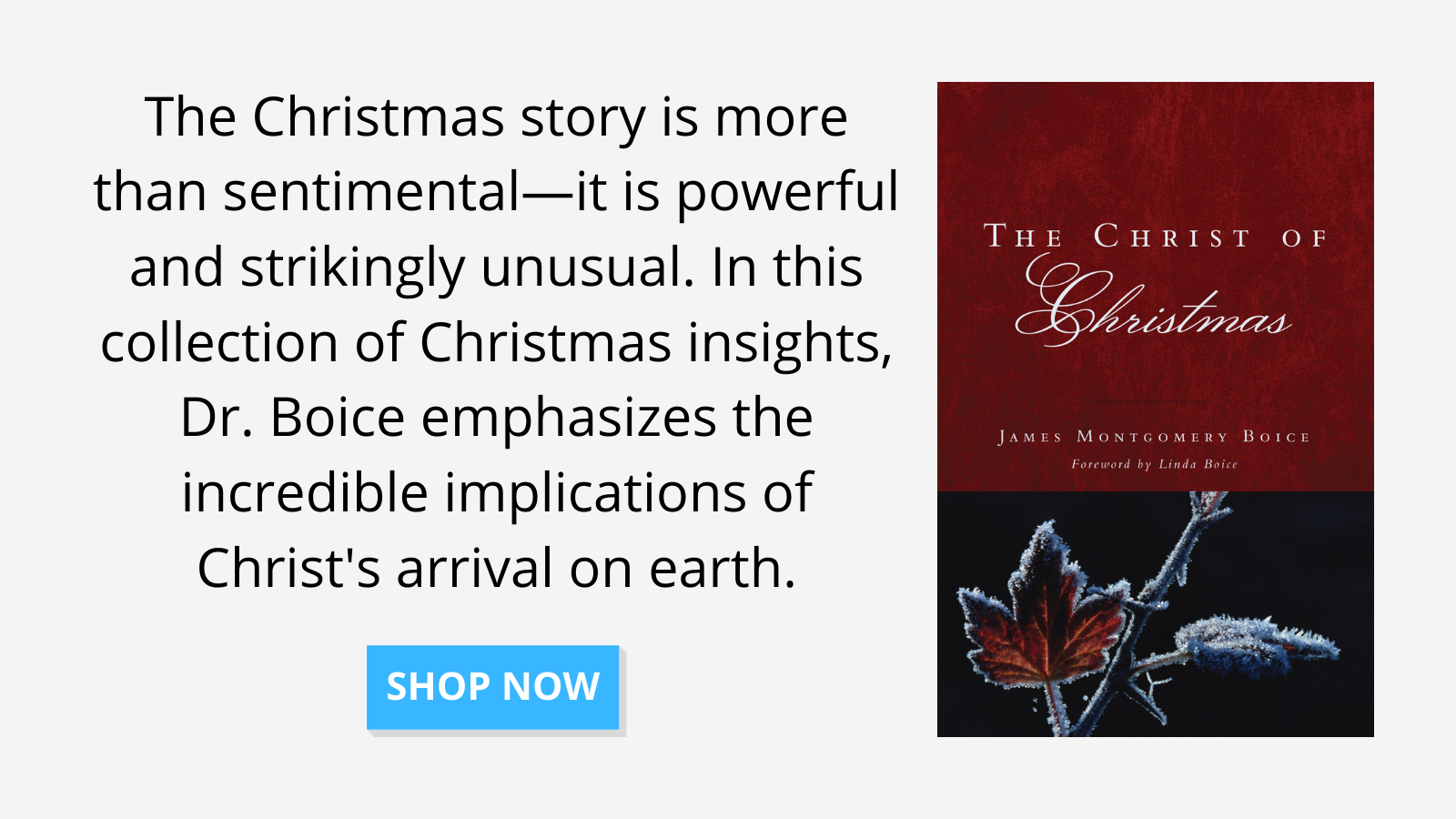Here is a short excerpt taken from pages 81-83 of The Christ of Christmas by James Montgomery Boice.
The King in a Manger
Every person has a birthday, and most birthdays are remembered at least by the person himself and usually by his immediate family. But no birthday has ever been remembered so widely as the birthday of the Lord Jesus Christ.
We know that there is no real evidence that He was born on December 25. In fact, the one small bit of evidence we do have goes against that date. We are told that an announcement of His birth was made to shepherds when they were in the fields with their sheep, and that is normally true only during the spring and summer months, between late March and September. Actually, we observe the birth of Jesus on the day we do because this date was established by consensus during the first Christian centuries and has been preserved by tradition. But that is relatively unimportant. The important thing is that Jesus was born, and the interesting fact is that so many remember His birth.
Why is this? It is true that many remember the birth of Christ because they are Christians and therefore love and cherish Him. But millions of others are not Christians and yet also celebrate Christmas. Why has the birth of this one man so seized upon the minds and imaginations of men and women?
Christmas Paradoxes
Answers to that question are found in the paradoxes of the Christmas story, one of which we want to look at in detail.
One obvious paradox is of purity in the account of the birth of a child to an unwed mother. The birth of a child to a girl who is not married is not surprising or even remarkable, though it is tragic. It is a story known to any preacher—the girl, quite often deeply distressed; the parents, frantic with grief and indecision. But the tone of distress and grief we know is not the tone of this story. Rather, there is purity: the purity of Mary who, we are told, was troubled by the angel’s announcement and asked in innocence, “How will this be . . . since I am a virgin?” (Luke 1:34); and the purity of Joseph, who was not the father but who believed the announcement of the angel and so shielded Mary by marrying her, though he did not have intercourse with her until after Jesus was born.
A second paradox follows that one. It is also a story of joy in what would normally be a tragedy. Under normal circumstances Mary would have been in danger of vicious public exposure and even death, for stoning was the penalty prescribed for fornication in Israel. She would have been distraught and in anguish. Yet when Mary came to her cousin Elizabeth, to whom she had gone to share her unbelievable news, Elizabeth at once broke forth in praise to God and in ascriptions of blessings on Mary, and Mary responded with that great hymn of praise known as the Magnificat.
There are other contrasts in this story. There is the announcement of the birth of the baby to shepherds, those from the lowest levels of ancient Jewish society, by angels who are certainly figures of great stature and glory. There is the neglect of Jesus by His own people, while Gentile wise men came to worship Him. Even the baby is a paradox. For unlike other babies, who are born to live, this child was born to die.
And yet, in this great story so filled with paradoxes, there is one paradox that stands out above the rest, and perhaps more than any other commends the account to many people. It is that the one born in such lowly surroundings—in a stable, of poor parents, laid in an animal’s manger—was nevertheless the God of glory, whose splendor before the incarnation surpassed that even of those heavenly beings who announced His birth to the shepherds. Here is a baby. But He is the King of kings and Lord of lords. He is God in a stable. He is the supreme potentate of the universe among His own lowly cattle.
That is the paradox of the incarnation: Immanuel!


Comments